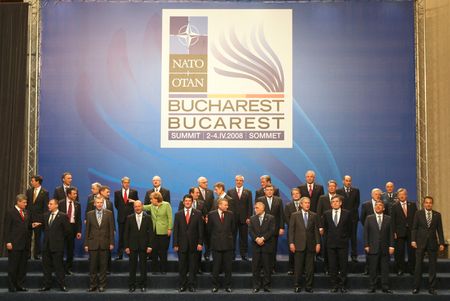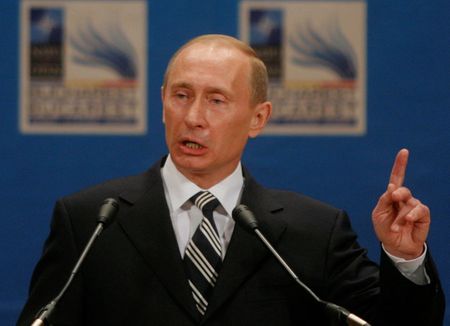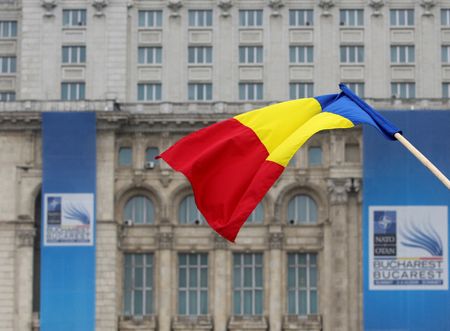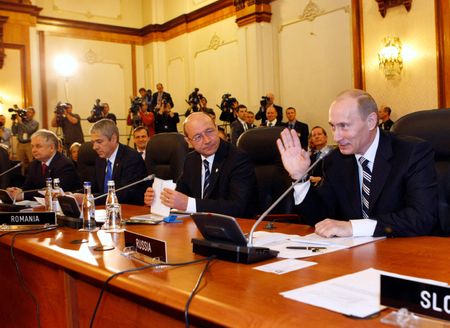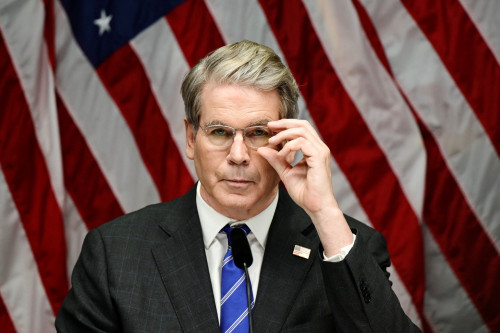By Andrew Gray
VILNIUS (Reuters) – As NATO nations try to agree on Ukraine’s push for membership at a summit in Vilnius this week, an earlier gathering casts a long shadow.
At a summit in Bucharest in April 2008, NATO declared that both Ukraine and Georgia would join the U.S.-led defence alliance – but gave them no plan for how to get there.
The declaration papered over cracks between the United States, which wanted to admit both countries, and France and Germany, which feared that would antagonise Russia.
While it may have been an artful diplomatic compromise, some analysts see it as the worst of both worlds: It served notice to Moscow that two countries it once ruled as part of the Soviet Union would join NATO – but brought them no closer to the protection that comes with membership.
Now, President Volodymyr Zelenskiy is pressing NATO to make clear how and when Ukraine can join, after the war triggered by Russia’s invasion is over.
Once again, there are divisions within NATO. And officials often cite the Bucharest declaration as a reference point.
There is widespread agreement that NATO should move “beyond Bucharest”, and not just restate that Ukraine will join one day. But there are substantial differences over how far to go.
This time, the United States and Germany have been the most reluctant to support anything that could be seen as an invitation or a process leading to membership automatically.
Meanwhile, Eastern European NATO members, all of which spent decades under Moscow’s control in the last century, are pushing for Kyiv to get a clear road map, with some backing from France.
Although Ukrainian Foreign Minister Dmytro Kuleba announced on Monday that a series of formal conditions for membership had been removed, the Vilnius declaration will inevitably be another compromise.
Assertions that “Ukraine’s rightful place is in NATO” and that it will join “when conditions allow” are among the phrases being discussed, diplomats say, as officials try to find wording acceptable to all NATO’s 31 members. It may end up, as in Bucharest, being left to the leaders to resolve.
The parallels with the 2008 summit, held in the colossal Parliament Palace commissioned by Romanian communist dictator Nicolae Ceausescu, have struck many NATO-watchers.
Orysia Lutsevych, a Ukraine policy expert at the Chatham House think tank, said Zelenskiy and his advisers were working to secure as unambiguous an outcome as possible for Kyiv this time.
“The Bucharest summit left a lot of bad aftertaste and actually created the strategic ambiguity … the permanent NATO waiting room for Ukraine and Georgia,” she said.
PRESSURE FROM PUTIN
Much has changed since 2008, but one constant remains: Vladimir Putin.
The Russian president personally lobbied leaders in Bucharest not to bring Ukraine and Georgia into NATO.
This time, it is Zelenskiy who has the chance to make his case in person. But Russia will still be a big factor in discussions.
Underlying it all is the question of whether NATO would be prepared to come to Ukraine’s defence against Russia, starting a direct conflict between nuclear-armed powers. So far, all Western military backing for Kyiv has come from individual member states, not the transatlantic alliance as a whole.
Eastern European countries say the best way to ensure Russia does not attack Ukraine again is to bring it under the collective security umbrella that goes with NATO membership soon after the war. They say the Bucharest wording made little difference to Putin’s long-term intentions.
But others argue that promising Ukraine NATO membership after the war could encourage Putin to keep the conflict going.
They say the Bucharest declaration in fact prompted Putin to test Western Ukrainian militarily in both Ukraine and Georgia.
Four months after the summit, shelling from Georgia’s Russian-backed breakaway South Ossetia region induced the pro-Western government in Tbilisi to send in its army.
This in turn was promptly crushed by a Russian invasion force, cementing Moscow’s hold over a part of Georgia.
In 2014, Russia seized Crimea from Ukraine by force and backed separatist uprisings in eastern Ukraine’s Donbass region. And in February last year, Moscow launched its all-out invasion of Ukraine.
Moscow says the Bucharest declaration showed that NATO posed a threat to Russia.
But Ukraine says NATO made a promise and must now keep it.
“Whether 2008 was the right decision or not, we can leave that aside and just say that it took on really symbolic importance going forward,” said said Timothy Sayle, professor at the University of Toronto and author of a book on NATO history.
“The diplomats need to remind their leaders that what NATO says or what NATO writes in its communiques has lasting significance – and can create unexpected obligations.”
(Reporting by Andrew Gray; Editing by Kevin Liffey)

